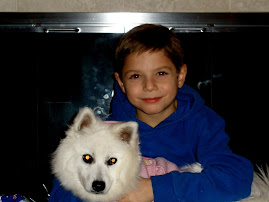The oldest dog in our home is BlackJacks, our lovable 15 year old black Labrador. Seven years ago he crossed over into canine seniorhood. Senior dogs require a different kind of care than younger dogs and it is important to maintain regular veterinary checkups. An older dog is more likely to develop illnesses, injuries and other age-related health problems such as diabetes, kidney failure and arthritis.
 It may be a little harder to know when to seek immediate veterinary care for your senior dog. Be sure to watch for changes in his/her activity level, eating or drinking habits, breathing, and behavior. These could be indications of problems above and beyond normal aging, including diabetes, liver failure, hypothyroidism and Cushing's disease. Lisa Hanks, writer for DogWorld magazine provides the following list of symptoms to look out for:
It may be a little harder to know when to seek immediate veterinary care for your senior dog. Be sure to watch for changes in his/her activity level, eating or drinking habits, breathing, and behavior. These could be indications of problems above and beyond normal aging, including diabetes, liver failure, hypothyroidism and Cushing's disease. Lisa Hanks, writer for DogWorld magazine provides the following list of symptoms to look out for:- Blood in feces or urine
- Collapsing or sudden weakness
- Confusion
- Coughing after activity
- Difficulty eliminating or urinating
- Elimination problems, such as diarrhea or accidents, lasting for more than 24 hours
- Excessive panting
- Excessive thirst
- Failure to eat
- Hair loss or persistent skin sores
- Hearing loss
- Increased eating without weight gain
- Increased lethargy or naps
- Lameness lasting more than five days
- Personality changes
- Retreating from family activities
- Seizures
- Staggering or lack of coordination
- Sudden blindness or vision loss
- Sudden change in urination or urine leakage
- Sudden weight loss or gain
- Vomiting that lasts more than 24 hours
If you think something is off, it is much better to contact your vet rather than doing nothing or trying to "wait it out". The sooner you can treat your dog, the sooner he/she will become healthy again.












